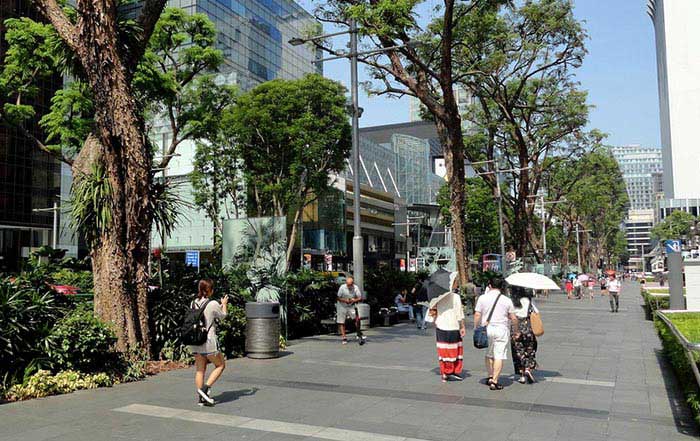Many analysts describe Singapore as a prosperous free market economy. Some have described the country as the most successful development case study. For example, Linda Lim, who's a University of Michigan economic expert, says: ";I don't really think any other world economy ( including the other celebrated Asian Tigers) have such a great statistical record characterized by full employment, rapid growth and excellent social indicators- life expectancy, housing and education prospects… like Singapore.";
The man who steered Singapore to such admirable heights- Lee Kuan Yew- died recently. Regardless, he led the country to achieve an impressive transformation. Analysts regard Lee Kuan Yew as one of the world's most influential political and economic leaders of the 20th century. Many considered Lee an autocrat who led the small island-state to become one of the richest in the world. Indeed, Singapore became a shining role model for other Asian nations and the world as a whole. Many note that Singapore has few natural resources and little land.
The country attained independence from Britain in 1965 and immediately began a transformation that led it to become a significant financial and manufacturing centre. Think of this glowing tribute from the celebrated late economist Milton Friedman: ";Singapore is a shining example of precisely how to do development in the right way. Just compare the situation of Singaporeans with that of the Chinese or Indonesians. You'll soon discover one thing- economic freedom is an essential component that results in total freedom."; As noted, most conservatives consider Singapore to be a veritable free-market success model characterized by few capital restrictions, liberal migration policies and low taxes; these factors have made the country earn a place as one of the most cosmopolitan places on earth.
As Josh Kurlantrzick, a member of the Council on Foreign Relations, says: ";Singapore has very free trade, few non-tariff barriers and extremely low tariffs. Go to Singapore and hear this: You can easily start your own company and have it running in a matter of three hours!"; Yes, just like China's Deng Xiaoping, which copied many policies from Singapore, the successful government, led by Lee certainly played a massive role in getting the country's economy running. Eventually, Singapore went on to attain an impressive economic transformation.
As Kurlantrzick says: ";Some of Singapore's biggest domestic economic sectors include electronics, shipbuilding, banking and even private banking. Singapore got its start because the government of Lee Kuan Yew specifically directed state funds into these essential areas."; ";Further,"; he adds, ";the government provided essential social services like health care and housing in such a way that even liberal economists were impressed. With this came a significant amount of peace… social peace. While the Lee cabinet designed the policies, Lee himself made the implementation possible- he provided the right leadership. Notably, Lee understood the diverse Singaporean politics. He established the needed laws (including labour laws) and thus created a peaceful, stable country that multinationals thrived in,"; she says. Note that analysts describe Singapore as the world's most expensive city.
According to Lee's personal philosophy, he believed his country's growth was linked to the values of the different religious and ethnic fabrics of his country. In 2013, Lee said this while addressing a group of college students: ";Since 1965, we've had an undivided society that thrived well behind a meritocratic system; we've pushed for higher educational standards, higher performance standards and vouched for meritocracy at every important level."; Thus, today Singapore stands tall as a highly successful economy, much like Japan. Of course, once in a while, the country's economy has slowed significantly. Singapore has also been forced to compete with low-wage countries that copied its successful policies. So, there are some challenges facing Singapore- just like other fast-developing economies.
Think of it: While the people live well, the Singaporean per capita conceals a saddening inequality level among the people. That's a major issue that cannot be wished away. This is among the things that the country's current leaders must deal with urgently. Despite this, Singapore is still a huge, successful financial sector; the people enjoy relatively high living standards. Undoubtedly, many fondly remember Lee Kuan Yew as a transformational leader who made Singapore's runaway prosperity possible. Yes, Singapore stands tall as a highly developed country, a huge financial success that many developing nations admire and emulate.

